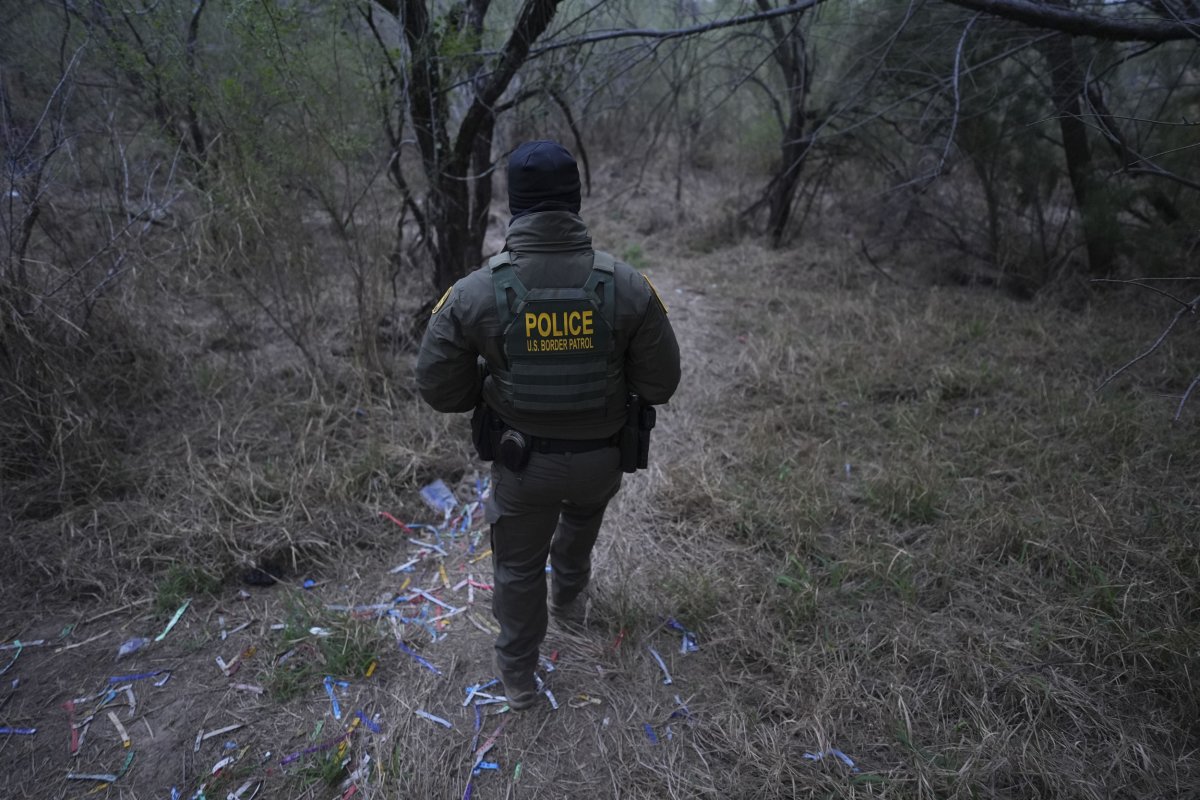Border Patrol agents will immediately cease using body cameras in the field, multiple sources have confirmed to NewsNation.
Newsweek contacted Customs and Border Protection for comment via email outside normal office hours.
Why It Matters
President Donald Trump, who made border security and strict immigration measures key elements of his 2024 campaign, has pledged to carry out the largest mass deportation program in U.S. history.
With increased immigration enforcement actions expected under his administration, body-worn cameras are arguably essential for Border Patrol agents as they enhance transparency, accountability and public trust by providing an objective record of interactions. Removing body cameras could reduce oversight and transparency, potentially undermining public confidence in border enforcement operations.

What To Know
According to sources cited by NewsNation, the policy change applies to all operational activities and has been driven by social media posts that discuss ways of identifying Border Patrol or Immigration and Customs Enforcement agents.
"All U.S. Border Patrol Agents will cease the use of body-worn cameras (BWC) in all operational environments," a statement to Border Patrol agents said, according to the outlet.
"This directive follows notification received by the IDVRS program management office, regarding a potential security risk associated with the BWCs used by USBP. Pending completion of investigation and risk mitigation, all Agents will stand down the use of their BWCs until further notice. Additional guidance and information will be disseminated as it is received," the statement continued.
On Reddit, a user suggested that agents could be detected using BLE Radar by F-Droid. The mobile application scans for Bluetooth Low Energy (BLE) devices, such as phones, smartwatches and speakers.
NewsNation reported that Border Patrol agents used Avon body cameras, which social media posts alleged could be detected from at least 100 yards away and could potentially trigger improvised explosive device attacks.
ICE is ramping up deportations of undocumented immigrants in the U.S. as it looks to carry out Trump's flagship deportation program.
Body-worn cameras provide crucial evidence in investigations, protect agents from false accusations and help prevent misconduct. Body cameras also aid in training, improve policies and encourage de-escalation by promoting professional behavior.
Additionally, they ensure compliance with legal and civil rights protections, which may help foster trust in law enforcement at a time when Trump's immigration policies have sparked accusations of rights violations and protests around the country.
The cameras are arguably a key precautionary measure that can help ensure the safety of migrants crossing the border and Border Patrol agents on the ground.
Last year, body camera footage emerged of the moment a migrant, trapped on top of the border wall in California, fell to her death as Border Patrol agents attempted to reassure her that help was on the way.
The footage from Customs and Border Protection showed that the woman was stuck for at least 24 minutes, pleading for help several times before she plunged from the top of the 30-foot wall.
Meanwhile, Newsweek previously reported that hundreds of border agents were under investigation for allegations of misconduct.
With 63,000 officers, Customs and Border Protection ranks among the world's largest law enforcement agencies.
What Happens Next
The suspension of body camera use among Border Patrol agents raises concerns about reduced oversight and transparency in border enforcement. While officials cite security risks as the reason for this decision, it could weaken accountability and lead to an increase in misconduct.
fairness meter
About the writer
Billal Rahman is a Live News reporter based in London, U.K. He specializes in foreign affairs and U.S. politics. He ... Read more



